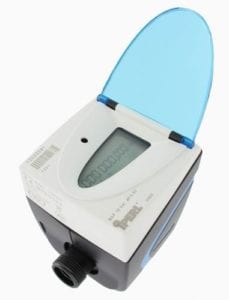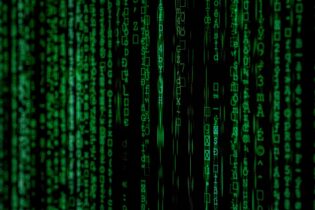Much has been written about the unacceptably high non-revenue water losses suffered by most municipalities.It is common knowledge that there are few water supply authorities that can claim a water loss of less than 30% of their potable water input.
It is assumed, with good reason, that one of the primary factors for this incredible water loss is aging reticulation infrastructure. Two primary components of a water reticulation infrastructure are pipework and meters.A number of municipalities have recognised the importance of accurate metering, both from the view point of increased revenue recovery from billing and, perhaps even more importantly, identifying where the water losses are occurring. Regulating replacement The accuracy of volumetric-type mechanical water meters used mainly for domestic metering deteriorates over time. This deterioration results in ever-increasing volumes of water not being measured. Some municipalities have identified this and are actively embarking on meter replacement programmes. In Germany, for example, the legal requirement for the replacement of mechanical domestic meters is six years. The South African Water Meter Manufacturers’ Association has proposed legislation setting the target at every 10 years. The reality at present is that the vast majority of meters in this country have been in service for between 10 and 15 years. Besides some tweaking, the fundamental components and basic principle of commonly used volumetric domestic meters have not changed in over 30 years.The question needs to be askedas to the effectiveness of meter replacement programmes given the relatively short accurate lifespan of the replacement meters. New meters, more saving A project undertaken by one of the largest and most proactive municipalities in South Africa revealed an average improvement of 9% in billing, after replacing the older mechanical meter technologies with new and improved technologies. These findings indicate that staying with meters where technologies have remained basically static for decades is a costly exercise. Smart metering, smart grids At the recent international Water Berlin exhibition, it was interesting to note that all of the major meter manufacturers were exhibiting the next generation of smart meters, which in most cases extended beyond the smart meters to a so-called “smart grid” capable of assimilating and transferring data on both water and electricity meters directly to a central database in near real time.The new generation of smart meters incorporates two basic features: a measuring technology having no moving parts and an electronic radio frequency interface allowing for remote reading of the meters.The fact that smart meters are not subject to wear means that their accurate service life can extend to 10 years and, in the case of the new SensusiPerl,even guarantee an accurate service life of 15 years.
Total cost and benefits The downside of the new technology is the initial capital outlay, which could be three or more times that of conventional mechanical meters.Although the electronic meter is more expensive, the cost of installation and ownership is greatly reduced. These meters do not require a protective housing, the cleaning of strainer blockages or replacement due to stoppages.They can be installed off the verge within the customer’s property, resulting in less tampering and vandalism.Additionally, meter reading errors are eliminated as these meters are read remotely.Despite incontrovertible evidence reflecting a staggering drop in water loss coupled with a substantial increase in revenue, it requires a leap of faith to make the change to smarter metering technology. The interim solution is to opt for a newer generation volumetric meter that has been smart meter enabled.Typically, this entails a volumetric meter employing the very latest construction materials, which are lighter, more sensitive and havebetter wear resistance.More importantly, however, it can be fitted with an intelligent RF module.The module replaces the old and unreliable reed switch, which is not suitable for billing purposes, with an accurate, high-resolution inductive interface.The module incorporates the intelligence normally associated with a true smart meter such as meter serial number, total recorded volume, forward/reverse flow, leak detection, etc.This information is transmitted at frequent intervals to the central database.Besides ensuring accurate billing, it allows water supply authorities to warn consumers of possible leaks and excessive consumption in near real time. The prepaid dilemma Another alternative is prepaid water meters.While prepaid electricity meters have been proven in this country, and indeed in many developed countries, the same cannot be said of prepaid water systems.The fundamental difference between prepaid water and prepaid electricity is the fact the electricity meters have power available to drive the data transmission module whereas prepaid water is reliant on battery power, which is also required to operate the shut off valve.As a result, prepaid water meters are costly devices incorporating a mechanical water meter, a mechanical shut-off valve and the necessary electronic control hardware.Unlike electricity prepaid meters, the meters are installed externally and exposed to the elements and are more likely to be exposed to tampering.Prepaid water systems require the installation of a costly secondary billing system required to manage credit loading and management of tokens.Perhaps the biggest issue relates to the perception that the shutting off of water as a result of payment default is perceived as punitive. This results in consumers rejecting the system and actively looking for ways to bypass or disrupt it.Finally, there is also the health issue, which forbids the total cut off of water to consumers as well as the legal nightmare should the water supply be shut off during a fire. A culture of accuracy support a culture of payment There is a perception that consumers do not want to pay for water, but one of the surprising outcomes of smart water installations is the fact that bad debt and the legal costs of debt recovery reduces to a point where it is no longer a major loss factor.It has been noted that the average consumer will accept the responsibility to pay if the bill is accurate, timeous and easy to pay e.g. by mobile phone.Furthermore, being kept informed of consumption (which includes warnings of possible leaks or excessive consumption) encourages consumers to manage their water consumption. It is generally accepted by leading water meter manufacturers that smart metering solutions will supersede both current mechanical metering systems and prepaid metering systems.






